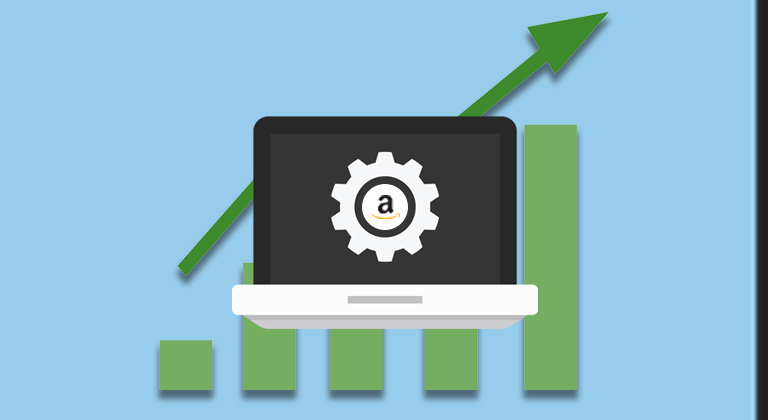What’s the difference between Affiliate Links and Attribution Tags?
By: Ginger | Posted on April 21, 2023
Before there were Attribute Tags, many authors used Affiliate Links to try and track their Amazon book sales, but there are a variety of drawbacks in doing so. Affiliate Links weren’t designed for this purpose, and are very limited in terms of where they can even be used. Today, Ginger delves into what Affiliate Links are, what they track, how and when to use them, and most importantly, how they differ from Attribution Tags. Both of these tracking tools have their purpose, but understanding the nuances of each can help you effectively monitor your book sales, optimize your marketing strategies, and keep you out of trouble. With so much discussion recently around Attribution Tags, it’s no wonder we’ve recently been getting questions about how they differ from Affiliate Links. If you’re not already familiar with them, Affiliate Links are a tool that authors used to use (and some still do)… Read More >
Measuring read-through with Attribution Tags
By: Ginger | Posted on April 7, 2023
As an author, it’s crucial to understand how many of your readers are purchasing multiple books from your catalog, especially if you have a series. This metric, known as the read-through rate, can provide valuable insights into your writing, marketing, and overall profitability. However, determining your read-through rate has never been an easy task. This is where Amazon’s Attribution Tags can come to the rescue! As Ginger explains below, by creating a tag that links multiple books together, you can track how many readers are continuing on to your other books after purchasing the advertised one. Armed with this information, you’ll be able to identify weak points in your catalog, improve reader engagement, and increase your return on investment. You may even discover that ads you thought were unprofitable were actually in the black because they were secretly driving sales of other books in your catalog. I’ve written plenty of… Read More >
How accurate are Attribution Tags in tracking book income?
By: Ginger | Posted on March 17, 2023
Ever since the introduction of Amazon’s Attribution Tags, authors have been able to track the book income resulting from their advertising and promotional campaigns to a level not seen before. This is incredibly useful for determining the value of these campaigns and planning strategies around then. But how accurate are they? In terms of tracking the sales that come directly as a result of a click from one of your attribution links, they’re very accurate, but that doesn’t actually tell the whole story. Even when the only promotion you’re doing is running a campaign with a tracked URL, you may very likely see more sales than are actually being reported. To demonstrate the issue and explain what’s going on, Ginger takes us through an example using an ad campaign he recently ran on one of his own books, complete with all the sales and page read numbers. I’ve been writing… Read More >
Maximize Your Book’s ROI with Attribution Tags
By: Ginger | Posted on February 24, 2023
Advertising can be expensive, so it’s important to be careful with your ads and always test the different elements to make sure that you’re maximizing your book’s ROI. Changing up the ad images and copy are the obvious first steps, but you can even experiment with other things, like what potential readers see when they click through the ad to your product page. And keep in mind that positive changes to your book’s product page won’t just help sell books to customers finding it from your ad, but from anyone that stumbles upon it organically as well. The ability to properly measure the results of your changes has only become realistic recently, though, with the introduction of Attribution Tags. Without them, you’re really just guessing. That’s why today, Ginger is going through how to use these tags to figure out the net result (whether positive or negative) that your changes… Read More >
Track Your Subscriber Behavior with Attribution Tags
By: Ginger | Posted on December 30, 2022
Generating a list of readers of your books is an invaluable marketing source that can be used in a number of different ways, and it’s one of the first things that authors should set up when they begin their self-publishing journey. Until now, however, many of the benefits you gain from your list were hard to directly quantify, especially for those that have a tendency to run multiple promotions at the same time as sending out newsletters announcing their latest release. In this final (for now) installment of our impromptu series of posts on Amazon’s new attribution tags, Ginger explains how these tags can take the guesswork out of the whole mailing list marketing process, allowing you to track your subscriber behavior down to the individual book purchase or page read. Not only can this knowledge help you grow your list and earn more money through more targeted advertising, but… Read More >
From the Mailbox: Amazon Attribution Tag Questions
By: Ginger | Posted on March 3, 2023
We often get questions from readers of our blog (or listeners of our Podcast) about things that we’ve discussed and we’re happy to send answers along if we have them. Sometimes the same questions come up repeatedly, though, which means that it would benefit the community a lot more if we used this space to open up the old mailbag and share the answers with everyone all at once. Recently, probably since we’ve been covering the topic so much and the feature is so new, we’ve been hearing some common questions regarding Attribution tags. So this week, Ginger is focusing his attention on answering the ones that have been coming up most often. Readers of this blog might have noticed I’ve been on a bit of a tear recently regarding Amazon Attribution Tags. I think these things are amazing – a game-changer for self-published authors and one of the few… Read More >
Amazon Attribution Provides Long-term KU Page Read Data
By: Ginger | Posted on January 27, 2023
Tracking individual sales that come from each advertising channel is incredibly useful, but if your book is enrolled in Kindle Unlimited, there is more to it than that. You might still be earning money without actual sales, when someone “borrows” your book and starts to read. In a way, KU borrows actually change how we have to look at how much our books earn from ads, because those page reads aren’t tied as closely to our ad run as more traditional sales. As Ginger reminds us, KU page reads mean your ROI doesn’t just stop at the end of your campaign. Using one of his own books as an example, Ginger takes us through the numbers to demonstrate how page reads can continue to pay dividends long after your ad run is over, and how attribution tags finally allow us to specifically track this metric. As you’ve probably noticed from… Read More >
Use Amazon Attribution to Make Your Social Media Work For You
By: Ginger | Posted on December 23, 2022
As we continue to experiment with Amazon’s new attribution tags, we discover more uses for them that are worth sharing with the self-publishing community as a whole, which explains why this is now the third week in a row that we’re covering the topic. This time, Ginger is sharing his thoughts on how to use these tags to enhance what you do with your social media posts and profiles. In particular, how you can now overcome one of the biggest complaints you probably have about your author social media accounts: How can you tell if any of your tweets, shares, posts or followers are really making any difference to your bottom line? Last week I wrote a post about Setting Up Attribution Tags for your Facebook Advertising and that brought me around to thinking about other ways we can use the exciting new Attribution feature of Advertising on Amazon. One… Read More >
How to Set Up Amazon Attribution for Facebook Ads
By: Ginger | Posted on December 16, 2022
If you’ve ever tried to advertise your book on Facebook, you are probably already aware of how difficult it is to judge their effectiveness and whether any of the clicks you’re paying for ever really turn into sales. Well, Amazon has finally rolled out a feature that can give you all that information, and it isn’t even that hard to start using. Ginger talked about it last week, but today he’s back to tell you just how to set up Amazon Attribution so that you can track not only your sales and other clicks, but your KU page reads as well. As he mentioned, this is a game changing feature that can really help authors improve their ad performance, so it’s definitely something you need to start using right away if you aren’t already! It’s finally here. After years of struggling to track the effectiveness of our Facebook ads (and… Read More >
How Amazon Attribution Changes the Game for Self-Published Authors
By: Ginger | Posted on December 9, 2022
Selling your books these days means advertising them, and up until now, if you were advertising an Amazon book on a platform other than theirs, you had to use a lot of guesswork to determine whether or not your ads were converting into actual sales. Recently, however, the retail giant has provided a method that allows you to track what happens when a customer follows your ad from elsewhere, and when used properly, this can be a game changer for self-published authors. Here’s Ginger to tell you all about it, and next week he’ll go through setting it up in more detail. Writing and self-publishing a novel is often only half the battle for self-published authors. The next step is to market that book to a receptive audience – hopefully one willing to reach into their wallets to support your work. That’s why advertising has become such a vital part… Read More >
















